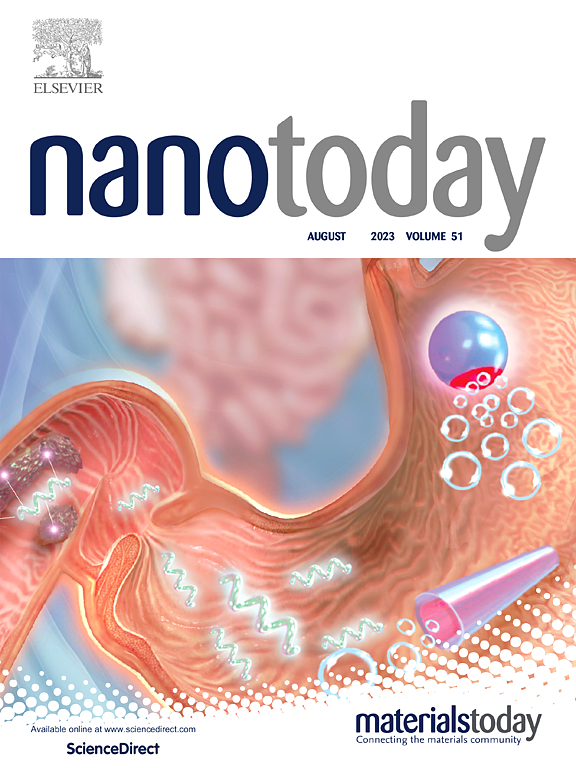Selenium nanoparticles restrain recurrence of cervical cancer in drug-free period by inhibiting the expression of ABC transporters
IF 13.2
1区 材料科学
Q1 CHEMISTRY, MULTIDISCIPLINARY
引用次数: 0
Abstract
Cervical cancer remains the one of the most frequent malignant tumors in women around the world. Cisplatin-based chemotherapy is a prevalent treatment for advanced cervical cancer, but it has significant side effects that necessitate drug-free periods during treatment cycles. Unfortunately, tumors often relapse during these intervals, highlighting the need for strategies to prevent recurrence. In the present study, the biological changes in cervical cancer cells following the withdrawal of cisplatin chemotherapy were investigated. Afterwards, the application of selenium nanoparticles (SeNPs) modified with lentinan (LNT) to address tumor recurrence during these drug-free periods was explored. Specifically, in vitro experiments demonstrated that SeNPs@LNT effectively inhibited tumor recurrence by promoting DNA damage, inducing apoptosis, and disrupting mitochondrial membrane potential. Additionally, in vivo experiments showed that SeNPs@LNT had a strong antitumor effect on cervical cancer during the drug-free period. It also remarkable that SeNPs@LNT might prevent the development of drug resistance by suppressing the expression of the ABC transporter and VEGF. Our findings suggest that SeNPs@LNT is a promising candidate for maintaining chemotherapy efficacy during the drug-free intervals of cisplatin treatment.
硒纳米颗粒通过抑制ABC转运蛋白的表达抑制无药期宫颈癌的复发
子宫颈癌仍然是世界上最常见的女性恶性肿瘤之一。以顺铂为基础的化疗是晚期宫颈癌的一种普遍治疗方法,但它有明显的副作用,需要在治疗周期中进行无药物治疗。不幸的是,肿瘤经常在这段时间内复发,因此需要采取预防复发的策略。本研究观察顺铂化疗停药后宫颈癌细胞的生物学变化。随后,我们探索了香菇多糖修饰的硒纳米粒子(SeNPs)在无药期治疗肿瘤复发的应用。具体而言,体外实验表明SeNPs@LNT通过促进DNA损伤、诱导细胞凋亡、破坏线粒体膜电位等方式有效抑制肿瘤复发。另外,体内实验表明SeNPs@LNT在不给药期间对宫颈癌有较强的抗肿瘤作用。同样值得注意的是,SeNPs@LNT可能通过抑制ABC转运蛋白和VEGF的表达来阻止耐药性的发展。我们的研究结果表明SeNPs@LNT是在顺铂治疗无药期维持化疗疗效的有希望的候选药物。
本文章由计算机程序翻译,如有差异,请以英文原文为准。
求助全文
约1分钟内获得全文
求助全文
来源期刊

Nano Today
工程技术-材料科学:综合
CiteScore
21.50
自引率
3.40%
发文量
305
审稿时长
40 days
期刊介绍:
Nano Today is a journal dedicated to publishing influential and innovative work in the field of nanoscience and technology. It covers a wide range of subject areas including biomaterials, materials chemistry, materials science, chemistry, bioengineering, biochemistry, genetics and molecular biology, engineering, and nanotechnology. The journal considers articles that inform readers about the latest research, breakthroughs, and topical issues in these fields. It provides comprehensive coverage through a mixture of peer-reviewed articles, research news, and information on key developments. Nano Today is abstracted and indexed in Science Citation Index, Ei Compendex, Embase, Scopus, and INSPEC.
 求助内容:
求助内容: 应助结果提醒方式:
应助结果提醒方式:


